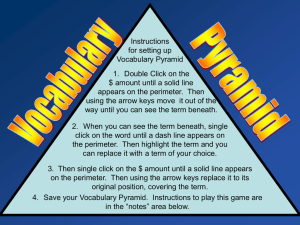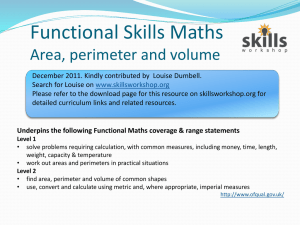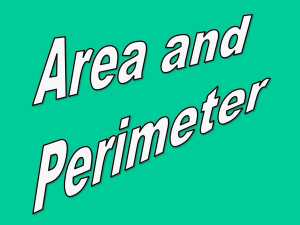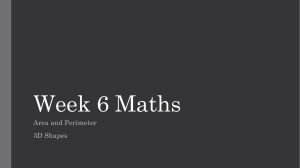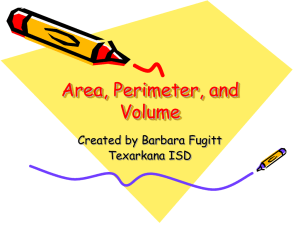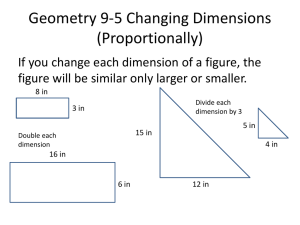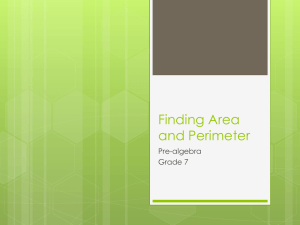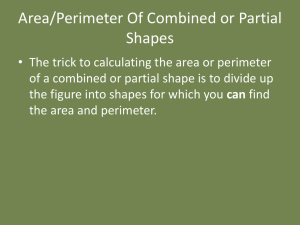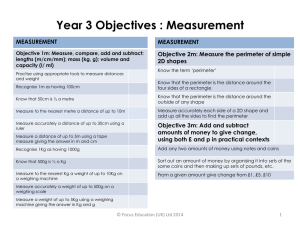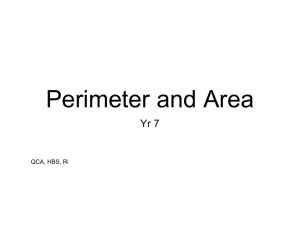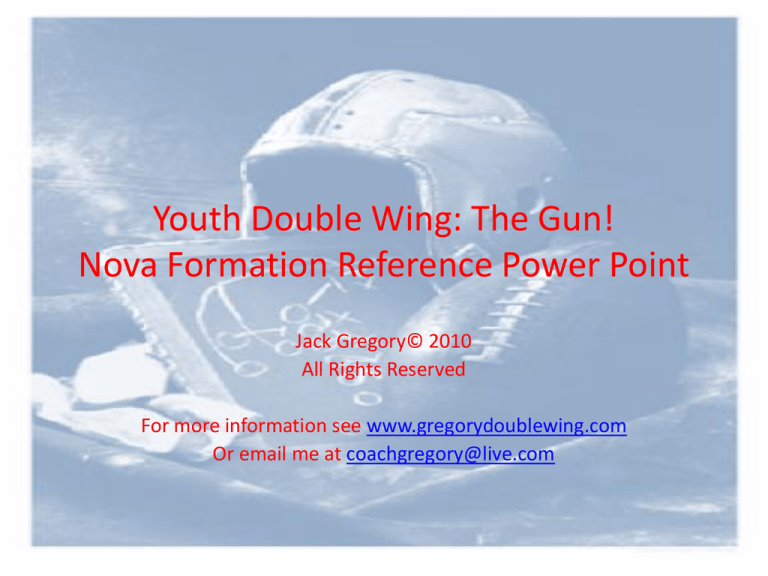
Youth Double Wing: The Gun!
Nova Formation Reference Power Point
Jack Gregory© 2010
All Rights Reserved
For more information see www.gregorydoublewing.com
Or email me at coachgregory@live.com
Why Use Gun Concepts
•
•
•
•
•
Give your power series a different look or feel
Manipulate the LINES OF FORCE to our advantage
Force pre-snap alignment/balance issues
Speed up the power series (attack down hill)
Gives us the ability to run the WB POWER over
and over while appearing “different” or
“multiple”
• Makes running WB POWER, WB POWER SWEEP,
and POWER PASS more robust.
Play Calling
Tight
Over
Formation
Edge
Motion
Motion
26/(AB)
Back/Hole
Seal
Blocking
Scheme
Non-Numbering System:
Numbering System:
QB = QB
BB = BB
LWB = AB
RWB = CB
10 = QB
20 = LWB (AB)
30 = BB
40 = RWB (CB)
Right
Wall Side
Tight Formation
QB/10
AB/20
CB/40
BB/30
Understanding the Points of Attack
Perimeter
Edge
LWB (20)
Interior
QB (10)/BB (30)
Edge
Perimeter
RWB (40)
Three points of attack on each side of the center: interior, edge, and
perimeter. I have gotten away from using GAP concepts (A, B, C, D)
because of the use of angle blocking concepts often change the point
of attack dependant on the defensive structure. Instead we attack a
location.
Understanding the Points of Attack
Vertical Out
Perimeter
Vertical Middle
Edge
Interior
Vertical Out
Edge
Perimeter
When you include the passing game the passes are going to be
directed at the perimeter (flat), the vertical outs on each side and the
vertical middle.
Common Perimeter Triangle Defensive
Approaches
53 Defense with a reduced
perimeter due to OLB stacking
over head up DT on OT. CB is
compressing inside and to LOS.
Variations in Point of Attack
• OVER – widens the edge space by adding one more
blocker to the TKO Wall.
• NASTY – widens the edge space by one by moving
the WB inside of the PSTE placing alignment pressure
on the PSDE.
• NASTY/OVER – widens the edge space by essentially
two by combining the two calls.
Perimeter Triangle Concept
LWB (20)
QB (10)/BB (30)
RWB (40)
Three players on each side of the that can immediately affect the perimeter.
CB (force), DE (contain), and OLB (alley). The ability to manipulate these three
defenders via edge tags, formation tags, and play calling is one of the key
advantages of the YDW. Applying stress to the perimeter triangle is a key
concept of the YDW.
Visual representation of the three primary players near each edge.
Elements of the Perimeter Triangle
• 1st vertices (corner) : 1st level defender or contain man.
End man on line of scrimmage (EMLOS) and that is often
the defensive end.
• 2nd vertices: 2nd level exterior defender who is often the
force defender. Often this is a corner back but it can be a
safety or even a OLB that has been bumped out.
• 3rd vertices: 2nd level interior who is often the alley
defender. This is outside linebacker or a strong safety.
Perimeter Triangle Concept
Edge Play
2nd Level Kick Out
2nd Most Important Block
2nd Level Seal Inside
3rd Most Important Block
Location of the Ball in Regards to the
Perimeter
1st Level Kick Out
Most Important Block
Perimeter Triangle Concept
Perimeter Play
2nd Level Kick Out/Wall Off
2nd Most Important Block
2nd Level Seal Inside
3rd Most Important Block
Location of the Ball in Regards to the
Perimeter
1st Level Seal Inside
Most Important Block
Applying Stress to the Perimeter
Triangle
• It is not sound to sit in one formation and expect the defense to not adapt
to your method of play calling and play execution.
• Human beings are creatures of adaption and athletes are the best
example of creatures of instantaneous adaption.
• Edge tags are a very simple away of changing the perimeter appearance of
a formation while the base play structure stays sound. (pre-snap)
• Formation tags are another simple method of changing the backfield
appearance so that a formation is no longer symmetrical (tight) and it
offers a LOF (line of force) advantage to the offense and specifically the
play. (pre-snap)
• Play tags are a final example of placing post-snap stress on a perimeter by
movement. (post-snap)
Applying Stress to the Perimeter
Triangle Cont’d
• There a two ways to attack a perimeter triangle.
• First is to isolate the perimeter triangle away from the
interior defenders. The use of ON, OVER, and NASTY
edge tags is a great way of accomplishing this pre-snap.
• Second is to expand the triangle so that you isolate the
defenders within the perimeter triangle away from each
other. The use of LOOSE, TRIPS, and BUNCH edge tags is
a great way of accomplishing this pre-snap.
• The 1st level defender is always the primary defender we
must account for. If we don’t open the 1st level the play
will not work!
Basics of Play Calling Structure
• Formation: the basic pattern the backfield will
align in. Base formation is a double tight end
balanced line with four back in the backfield
(TIGHT FORMATION).
• Edge Tags – how to move the perimeter
triangle around.
• Motion/Strength call (RIP/LIZ for example)
Formation Tags
• These tags adjust our backfield into various
alignments.
• Allows us to gain leverage and line of force
advantages on the defense.
• “Gun” or direct snap formations simplify and
speed up our power series.
Notes on Misdirection
• The mesh is very important to the success of fakes.
• Make sure that every counter and reverse fake that the ball carrier holding
the ball bellies the ball so it is safe.
• Make sure all faking backs “rub” near hips.
• The ball carrier bellying the ball will palm the crossing the ball carrier
above the belly
• The faking ball carrier will always open to receive a ball and as he palmed
will drop his top arm hard as his bottom arm slides to the near arm pit and
grabs cloth to make it look like he has the ball.
• All faking backs should get their eye on a perimeter defender and run
away from him and get vertical for 10 yards – no exception.
• Stress it in practice, stress it in scrimmage, stress it in games.
• One good fake equals two good blocks!
Shift
Formation tag
BSWB, QB, BB, PSWB
Star
Formation tag
BB, QB, BSWB, PSWB
Comet
Formation tag
BB, QB, BSWB, PSWB
Nova
Formation tag
BSWB, QB, BB, PSWB
Nova QB Footwork
1
3
2
4
Nova WB Pitch Alignment
Edge Tags
• We manipulate the perimeter defenders (DE,
OLB, and CB) by using various edge tags in
conjunction with formation tags to maximize
our player’s abilities and open up seams in the
defense.
• SHIFT: OVER, LOOSE, NASTY
• STAR: OVER, BUNCH, TRIPS
• COMET: OVER
• NOVA: OVER, LOOSE, NASTY
Edge Tags
Edge Tag
Purpose
On: WB moves onto the LOS foot to foot with
near side tight end.
Isolate perimeter triangle from interior
defenders. Expand TKO WALL to move
EMLOS/DE out.
Over: pulling tackle aligns on the wall side in
between the wall tackle and wall tight end.
Same as ON (above). Create an unbalanced
line. Put the PST (pulling side tackle) over to
the wall side to add additional blocker at POA.
Nasty: WB and Wall TE swap positions.
Isolate perimeter triangle from interior
defenders by putting the EMLOS/DE into an
alignment conflict.
Loose: Tight end moves out to a SE position
and the WB aligns in a SLOT position.
Stress the perimeter triangle by forcing it to
expand outward. It forces the CB and often the
OLB to move out with the pair.
Bunch: Tight end moves out to a SE #2 receiver
from outside, near WB moves to the #1 flanker
position, and the far WB (TB) moves to the #3
slot receiver position inside.
Stress the perimeter triangle and the
secondary coverage to expand outward. It
often forces the CB, OLB, and ILB to move out
with 3x RXR.
Trips: Tight end moves to #1 split end position,
near WB moves to the #2 flanker position, and
far WB moves to the #3 slot position.
Same as BUNCH but we align our SE and
Flanker in different positions and the are more
spread out.
Nova Power Series
Interior Plays
BB WEDGE Play
• Interior power play of this offense
• Use reverse action (XX) behind it to create
deception to hold the perimeter defenders in
place as we attack the middle
• Can be run out of Loose and Nasty as well like
SHIFT.
Nova Rip 30 Wedge RT
QB WEDGE Play
• Interior power play variant of this offense
• Uses reverse action behind it to create
misdirection behind the wedge.
• Nice alternative to the BB wedge if your QB is
a good runner.
Nova Rip 10 Wedge RT
NOVA NASTY
Edge Plays
WB SEAL Play
• Core play of this offense
• Must be able to run it anywhere on the field
at any time against anything thrown at us.
• We have a variety of ways running this play to
keep defenses on their toes.
Nova Rip 26 Seal RT
Shift Nasty Over Rip 26 Seal RT
Nova Over Rip 26 Seal RT
Nova Nasty Over Rip 26 Seal RT
Nova Loose Over Rip 26 Seal RT
QB SEAL Play
• Alternate power play of this offense
• Used when we have a very good running QB.
• We have a variety of ways running this play to
keep defenses on their toes.
Nova Rip 16 Seal RT
BB Kick
• Edge misdirection play that allows us to attack
the defense with the pre-flow look of WB
power in the opposite direction, reverse
action in the play direction and hit back inside
on the edge with the BB.
• BB must hit inside vertically and go northsouth quickly.
Nova Rip 33 Kick LT
WB Kick
• Edge misdirection play that allows us to attack
the defense with the pre-flow look of WB
power in one direction and hit back against
flow with an inside counter.
• WB must hit inside vertically and go northsouth quickly.
Nova Rip 45 Kick Left LT
WB Monster Sweep Play
• Perimeter power play. Overwhelm the point
of attack with pullers.
• Must seal the EMLOS to the inside.
• Best run when you have two in the perimeter
triangle and/or you see the EMLOS
squatting/crashing to the WB power play.
• Included in the frame is SHIFT OVER 28 MS
SWEEP as it changes the priorities of the
pullers.
Nova Rip 28 Monster Sweep RT
WB Wide Play
• Alternative power perimeter play for monster
sweep.
• If the OLB and CB are filling hard into the TKO
WALL this is a nice alternative.
• Good alternate if you are having problems
using Monster Sweep.
Nova Rip 28 Wide RT
WB Reverse Play
• Perimeter misdirection play. Isolate the
interior and perimeter defenders and attempt
to attack the backside perimeter triangle
(away from power).
• Key is 2 or less in the perimeter box and
EMLOS vacating contain.
Nova Rip 47 Wide Reverse LT
Play Action Passing
Power Pass
Run/Pass option
Basic flood pattern on the power side.
Read low to high (BB flat to WB out).
Can teach a peek deep if MOFO (middle of the field open).
Run this to the QB’s throwing side
Nova Rip Power Pass RT
Nova Lead Series
Zero Splits in this Offense
•
•
Reduces inside penetration and inside blitzing; takes the advantage of a superior athlete on
the interior and near the edge away from the defense. We have very few tackles for loss in
this offense because of the zero splits.
Simplifies defensive linemen alignments down to COVERED, SPLIT, and UNCOVERED.
•
•
•
•
•
•
•
•
•
•
•
COVERED : defensive linemen (DLM) is directly over the blocker.
SPLIT (COVERED): DLM is line up directly over the feet of two zero split blockers. Inside blocker is covered.
UNCOVERED: there is no DLM over the blocker take first defender you see going towards play side.
Makes double teams, cut blocks, and trap blocks much easier to execute as the confined space makes it difficult
for the defense to move in and see in.
Our TKO wall forms quickly in zero splits as all the players landmarks are right next to them.
Pullers have a shorter space to move to and it allows us to use them vertically as well as horizontally.
Wedge forms vertically immediately as our line gets off the ball.
Puts our tight end into the free blocking zone especially at the youth level.
Increases the size of the perimeter on both sides. Defense are not used to playing in
compressed spaces they are used to playing offenses with splits our line is used to playing in
compressed spaces as we stress footwork and execution in those small spaces.
The holes or soft spots in the defense are essentially the uncovered blockers. Those are the
soft spots in the defense. We force the defense to defend those soft spots while also
defending the perimeter and the verticals (passing game).
The zero splits make less athletic linemen appear to be more athletic as they have to cover
very little space and have immediate help (wall blocking/wedge blocking). It forces the
defensive linemen to play with their head on a constant swivel as they never know where the
immediate contact will come from.
Notes on Lead Series and
Covered/Uncovered blocking
Lead series is based on using a covered/uncovered blocking concept. Initially we teach these
concepts via our pass protection (sprint) via the power pass. So the basic covered/uncovered read
process is developed early on and we simply convert this into a running oriented rule system.
COVERED & SPLIT:
A covered blocker is a blocker with a defender breaking the vertical line of his inside or outside
shoulder. If a defender splits two blockers due to zero splits the inside defender is covered and
the outside defender is uncovered by that specific defender. This is because we always want
leverage on the inside defender first and foremost so that we protect our inside gap and we wall
off that defender. If a blocker has two defenders splitting him that means he is covered by the
inside split defender and the outside defender is ignored as he will cover the next defender or be
kicked/walled out.
UNCOVERED:
The uncovered rule means that no defender (defensive linemen) is over a blocker by the rules
above and will follow his uncovered assignment. Once he determines he is uncovered he has to
locate the most dangerous man; FIRST DEFENDER TO SHOW is the rule. He looks for first backer to
show and then safety. This gives our blockers a great amount of flexibility within each specific
scheme as well so that we can let a uncovered blocker help out (combo) a good defender.
LEG & TURN
• The schemes utilize our base LEG progression but adds a TURN component
on the third step and it is now used against head up or covered defenders.
Which is precisely how we initially teach our LEG blocking progression and
continue to teach it during Every Day Drills (EDDs) after our dynamic warm
ups. So in reality there really is no additional teaching of this scheme
other than the actual plays being taught.
• LOAD
• EXPLODE
• GO TO LANDMARK
• TURN YOUR HIPS INTO THE HOLE (whip your butt towards the point of
attack)
Interior Plays
FB Dive Right
Double Dive Play
FB dive into the pull side outside hip off center.
We are trying to isolate the ILB/MIKE backer and cut off the
outside backers and force the MIKE to bite on either side.
XX behind the double dive holds the perimeter defenders in place
to further isolate the ILB.
Interior isolation play
Nova Rip 31 Dive Right
Nova Liz 32 Left
QB Dive Right
Double Dive Play
QB dive into the wall side guard’s outside hip.
We are trying to isolate the ILB/MIKE backer and cut off the
outside backers and force the MIKE to bite on either side.
XX behind the double dive holds the perimeter defenders in place
to further isolate the ILB.
Interior isolation play
Nova Rip 14 Dive Right
Nova Liz 13 Dive Left
Edge Plays
QB Isolation Left
Isolation Lead Play
QB hits at pulling tackles heels.
We are trying to isolate the near backer with a lead block from our
BB.
XX action behind the QB isolation holds the perimeter defenders in
place as we attack the edge.
Pulling guard and pulling tackle execute a cross block to pry open
the hole.
Needs to have a window open over the pull tackle to run this play
(soft spot – no defensive linemen).
Nova Rip 13 ISO Right
Nova Liz 14 ISO Left
TB Isolation Left
Isolation Lead Play
TB hits at pulling tackles heels.
We are trying to isolate the near backer with a lead block from our
BB and an additional lead block by the QB on any 2nd level
perimeter player.
XX action behind the QB isolation holds the perimeter defenders in
place as we attack the edge.
Pulling guard and pulling tackle execute a cross block to pry open
the hole.
Needs to have a window open over the pull tackle to run this play
(soft spot – no defensive linemen).
Nova Rip 23 ISO Right
Shift Liz 44 ISO Left
QB Isolation Right
Isolation Lead Play
QB hits at pulling tackles heels.
We are trying to isolate the near backer with a lead block from our
BB.
XX action behind the QB isolation holds the perimeter defenders in
place as we attack the edge.
Center and Wall guard double covered defender and Wall tackle
and Wall tight end double team the covered defender.
Needs to have a window open over the wall tackle to run this play
(soft spot – no defensive linemen).
Nova Rip 14 Double Right
Shift Liz 43 Double Left
Perimeter Plays
WB PIN Right
TB Pin Sweep (Power Sweep) (Rip 28 Pin, Liz 47 Pin)
Perimeter power play. Overwhelm the perimeter by using an
aggressive vertical drive step and pinning the outside hip of all play
side defenders and keying the last defender outside for wall off/kick
out.
Must seal the EMLOS to the inside and key the last perimeter defender
for wall off/kick out.
Best run when you have two in the perimeter triangle and/or you see
the EMLOS squatting/crashing to the WB power play as it further
isolates the remaining perimeter defenders.
Nova Rip 28 Pin Right
BB PIN Left
FB Pin Sweep (counter sweep) (Rip 37 Pin Right, Liz 38 Pin Left)
Perimeter misdirection play. Isolates the remaining perimeter
defender on the weak side when defenses are shifting to our
perceived strength and reducing their backside perimeter to two or
less.
Key is 2 or less in the perimeter box and EMLOS vacating contain
with shallow pinch inside to chase power/power sweep/power
pass.
Best used against teams that are crashing the backside of power
and allowing our TB to pin him inside while the QB leads for the BB
running sweep.
Great for teams with athletic BB’s with speed.
Very nice non-pulling misdirection sweep that utilizes a fast BB on
the weak side much the same way we use XX Reverse in our power
series.
Nova Rip 37 Pin Left
Play Action Passing
Drag Pass
Run/Pass option
Basic high low drag pattern to power side.
Read PSWB corner to BSTE shallow drag (high to low)
TB walls off backside unless the “TB” tag is added then he
executes a swing & wheel route.
Reverse Pass
Based off of XX action with WB passing (need a passer at WB)
Basic high low drag pattern to backside (great for over shifted
defenses)
Read PTE (corner) to WTE (drag) or HIGH to LOW.
TB walls off backside unless the “TB” tag is added then he
executes a swing & wheel route.
Drag Pass
Nova Rip Drag Pass Right
Reverse Pass
Nova Rip Reverse Pass Left

